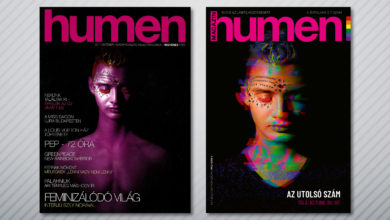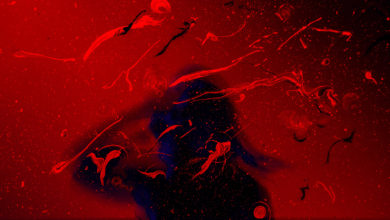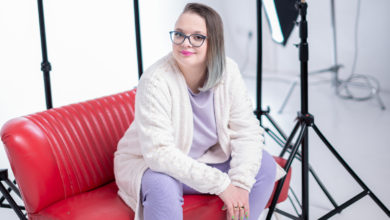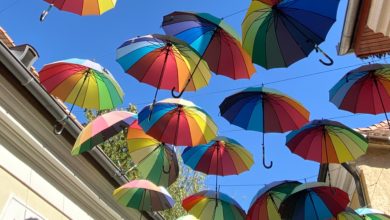“Hungarian people are not shy to stand up for their rights”
Interview with René van Hell, leaving Ambassador of the Netherlands to Hungary
Ambassador René van Hell arrived in Hungary exactly 4 years ago. He and his crew experienced a lot, both good and difficult times. In the last days of his tenure, we had the opportunity to sit down with him and talk about his Hungarian journey including a pandemic, LGBTQI rights, and the role of the Netherlands in the world. Via phone we were joined by Wouter Kuin who joins the embassy as Second Secretary at the end of August.
A wide range of European media reported the Paedophilia Act introduced and passed by the Hungarian Parliament and the massive protest before that. In your opinion, what can be the consequences of the anti-gay and anti-trans parts of the legislation?
Wouter Kuin: Those pieces are concerning. I am worried about the LGBTQI youth. René is older than me but we both remember the difficulty of coming out. It is a mental struggle because first and foremost it is about self-acceptance, which is a difficult thing when you are growing up. If you are less lucky you also struggle with the acceptance of your environment, including family and friends. This struggle becomes even tougher if you don’t have any role models.
In the Netherlands if you look at the statistics, members of the LGBTQ community have twice higher chance to suffer from depression and the amount of people who commit suicide is four times higher than among heterosexual people. In the Netherlands these numbers are decreasing because acceptance has increased and LGBTIQ people feel more accepted by society. If younger people don’t have role models, they feel more as outcasts with all the consequences mentioned before.
René van Hell: Obviously, the law attracted a lot of attention in Europe and among others it was condemned by our prime minister, Mark Rutte as well, who was surprised by it. Important to emphasize that it is good to have law against paedophilia and to make sure that Hungarian children are protected. But the mention of LGBTQI rights is a very strange storyline, and not in a good way. It is also false that Brussels is coming after Hungarian families.
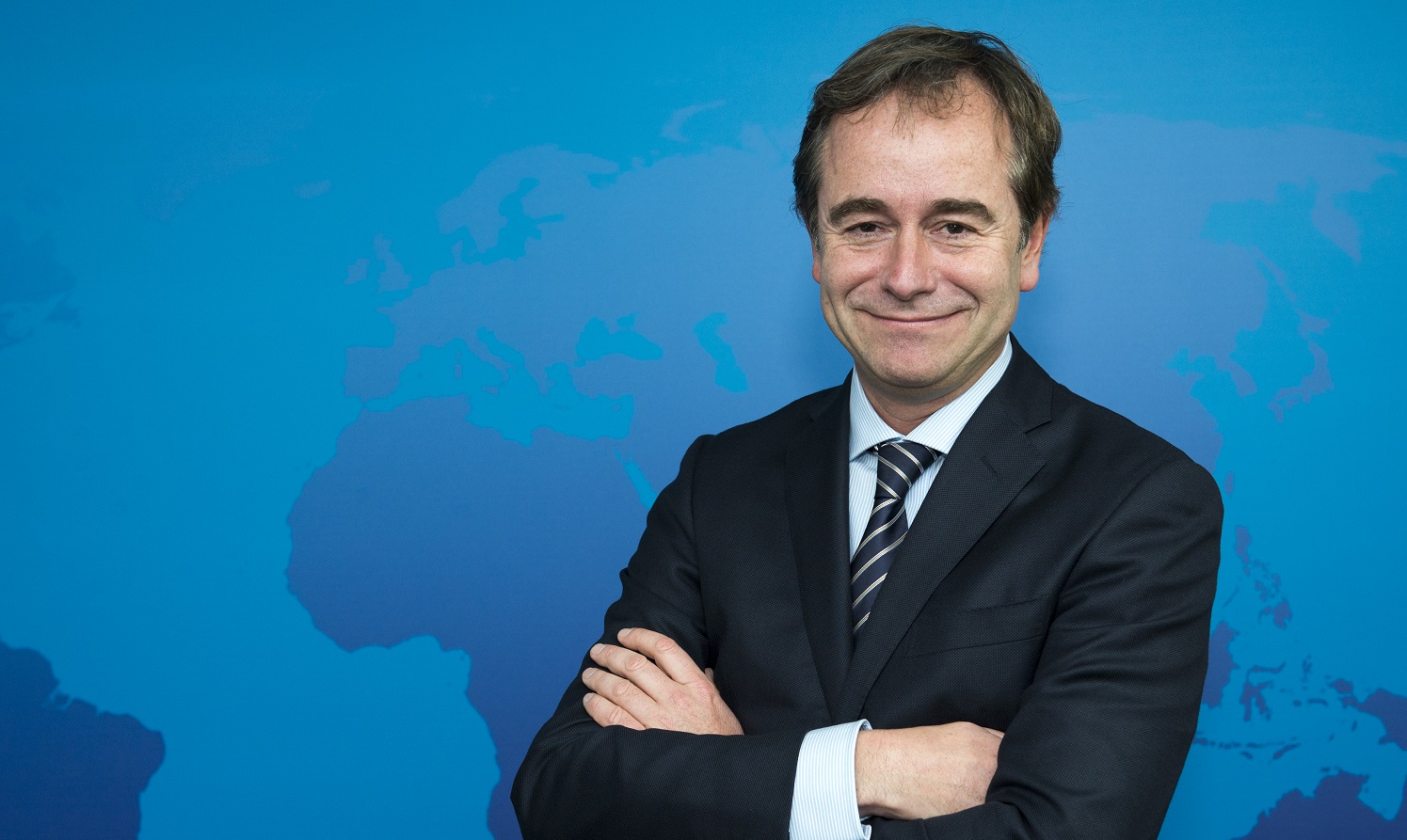
René, you maintained good and vivid relationship with Hungarian LGBTQI people in these 4 years. What are your most notable impressions?
RVH: I found that these people have tremendous strength in their creativity. Hungarian people are not shy to stand up for their rights. People are articulate, fun, and intelligent. I had the good fortune to meet representatives of Labrisz, Transvanilla, Budapest Pride, Háttér Society, Amnesty Hungary, Hungarian Helsinki Committee, Humen and other entities many times. It was amazing to watch and listen how motivated and proud they are. They are role models in the community, in their families, among their friends. We need this spirit.
What I sometimes ask is that it seems like there are a lot of organisations. I could envision more unity which would lead to even more efficient co-operation.
WK: It is interesting, because in the Netherlands there is only one large organisation, the COC Nederland and there are separate organisations in charge of organising pride events. However, I have to say that 30,000 participants at Budapest Pride is massive. I am going to the Amsterdam Pride Walk on Saturday the 7th of August, but I think it would be a very ambitious goal to anticipate that many joiners. It tells a lot about the organisational capacity in Hungary.
Wouter, you arrive to Hungary in late August. What would you share about your soon-to-be-filled position and priorities?
WK: First, let me say thank you for making possible to join the interview. Even though I am not yet in Hungary, it is a nice way to introduce myself! Indeed, I start in the last week of August and as Second Secretary my focus is primarily on political affairs including geopolitics, rule of law, and human rights.
As part of human rights, LGBTQI rights are especially close to my heart for at least two reasons. I am also a member of the community and the Netherlands have been embracing LGBTQI rights for decades not only at home, but around the world as well. Following my arrival, I would like to support the Hungarian LGBTQI people, meet representatives of the organisations, listen to their stories, understand what they need and at what capacity the embassy could support them.
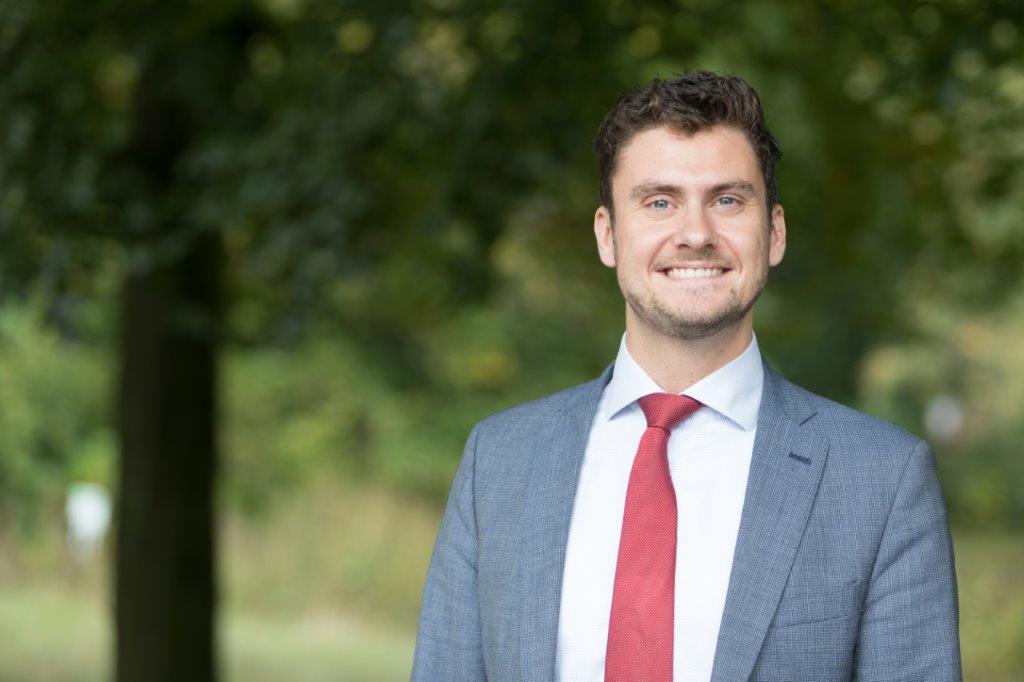
What does it mean today to grow up as gay or lesbian in the Netherlands?
WK: The situation is solidly improving. If you look at the youth, the coming out process is a lot easier for them than it was ten or twenty years ago. Schools have recently been obliged to have an action plan on combating bullying and providing an accepting environment. These are good steps. The police also pay more attention to hate crime based on sexual orientation and gender identity. They register it, they report it, they know how to deal with it. In some communities the level of acceptance remains very low which is an important reminder that even in the Netherlands your life is impacted by where you grow up and where you live.
The Embassy of the Netherlands welcomes Budapest Pride each year. This year 42 embassies and cultural institutions co-signed the welcoming letter. In your view, why is it important to have these acts of solidarity?
RVH: We have the responsibility to show that we are there, and we provide visibility. As Wouter mentioned, we do it in each country around the world. For us, for Dutch people, LGBTQI rights are one of the priorities within human rights.
Equal marriage was passed 20 years ago in the Netherlands. Most of our readers were not even born then, do not remember, or could not read details of it. What were the main steps of this pioneering victory?
RVH: I was happily surprised that it could happen. I was in my early thirties back then. The fact that you could legally do it at the city hall, helped a lot. Because it meant that you didn’t need a paper from the church. Of course, churches could also introduce marriage equality, but they were not obliged by the state. It was about being equal in the eye of the law, and no one turned it into a moral question. It was not imposed on the churches and on people who didn’t want it.
If you look at the present, it is another stage of emancipation. It was different when I started to work in the eighties. The acceptance was there but homosexuality was more unknown and if you spoke about it, people were more surprised. Things have improved so much in such a short time.
Let me give you one example. I knew I was gay when I was 13 years old and growing up I somehow accepted that since I am gay, I will probably never have children. On the other hand, now, if you are young and gay, you can grow up with the idea that you can have children. But my youth fell into a different period when it was inconceivable.
The end of August would mark the 4th anniversary of your arrival to Budapest. Would you recall the thoughts you had back then?
RVH: In the Netherlands you are able apply for ambassadorship which means you are not sent to somewhere you don’t want to go. I chose Hungary and I was so curious. I visited Hungary for the very first time in 1985 and back then it was still kind of a colony of the Soviet Union. Later I was really motivated to work on bilateral co-operations so Hungary could become a democracy, be part of the NATO, and eventually be part of the EU.
I knew that our countries had some differences of opinion when I arrived. It was very interesting to work on issues where we agree, for example tackling climate change, but sometimes there were disagreements. Of course, it may seem that we disagree on a lot, but there is always discussion in the European Union. We are supposed to work on these issues.
A very Hungarian phenomenon is that Fidesz has been one the most popular parties in the European Union for more than a decade. There is no other party that gets continuously two-third majority of the seats in the parliament. That creates incredible responsibility for them and of course leads to questions.
The fragmentation of the opposite parties is also an interesting feature. When I came here in 2017, I was very surprised how disunited they are. I think government is about competing powers, so it is great if a country has a strong government, but it is also important to have organised opposition. Our prime minister, Mark Rutte has been governing equally long as prime minister Viktor Orbán but he really has to manoeuvre into different coalitions because the opposition is strong and they have their own victories too.
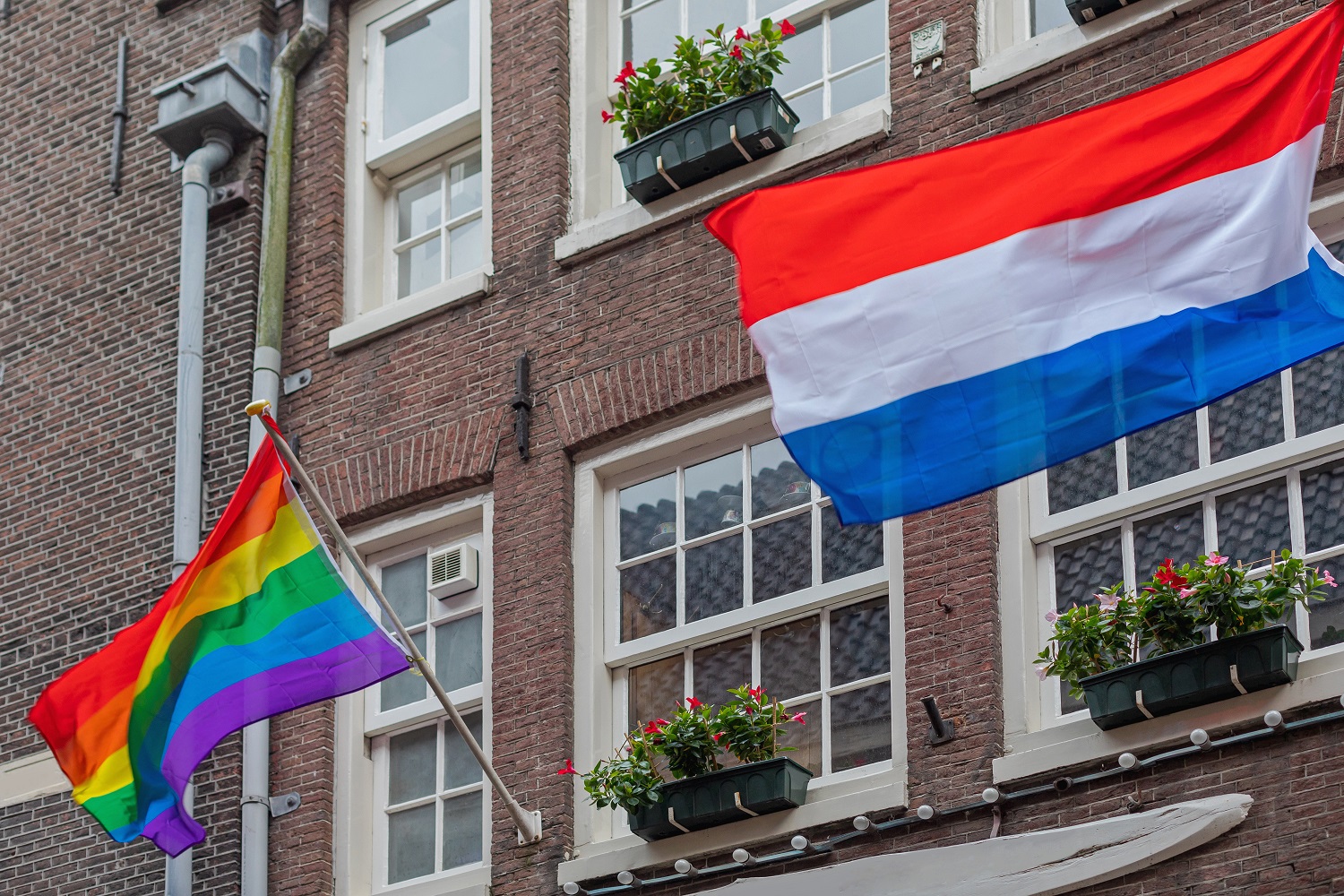
What are the proudest moments of your tenure?
RVH: There are so many! I am very proud of the great network I built with Hungarians from right to left, from South to North, from urban to rural. I also think that it was an achievement – In the light of Brexit, COVID and recovery – that the European Union still makes good decisions. Both Hungarian and Dutch people can be proud that we work together within the EU and take such wise decisions.
I am also proud of my team at the embassy who did a tremendous job and provided all the support I needed. We had some difficult times, but we came out of them stronger and more united.
How did the pandemic impact your daily work?
RVH: We were in home office from March to June 2021. Since then, we have been working in two shifts and luckily everybody has received their jabs. Honestly, working in front of a screen can be very boring so we were walking a lot around the city and still tried to meet people in person.
Anyone would admit that diplomacy work in total is not good in home office form, because in person meetings help to create consensus. That’s why it was so important that all the member states of the European Union could form consensus at the end, even though there were big discussions.
Also, I took the opportunity to explore Hungary by foot. I went on hikes in Pécs, in the Mecsek, around Badacsony, and in the Mátra. Those trips were so inspiring. I always felt respect and hospitality from Hungarian people.
Of course, thanks to my job and my age I was not necessarily part of the nightlife, but every now and then I went to Why Not and met a lot of friends which added to our life.
Do you have a farewell message to the Hungarian LGBTQI community?
RVH: It is important to keep speaking up, be visible, but I also recommend seeking co-operation, because when you experience pressure, it is important to communicate with others. Finally, speak with one voice!
The art of governing a country is about making sure that each citizen is treated with the same respect. It is not only about being equal in the eye of the law but also about respect and the promotion of respect. Hungarian LGBTQI people play an important role in society. It is important that when they grow up, they feel pride for Hungary.
WK: I would add that the European debate on the Paedophilia Act showed that there is a lot of support from the international community for the Hungarian LGBTQ community. Many European countries support them. It is important that people know they are supported. Take it as a welcome message and I am happy to be an ally of you.
René, what is the next mission of your life?
RVH: I move back to the Netherlands and will work on official development assistance. The key words are inclusive, green, and growth. Inclusive, because it focuses on poor countries, green, because it focuses on sustainability and fights against climate change, and growth, because it improves food security, responsible mining, and water sanitation.
I have to learn a lot of new things, but I have the inspiration and motivation to tackle climate change.
It sounds like a fantastic mission, and I wish good luck to you! Wouter, looking forward to meeting you in person! Thank you for the opportunity.
Dániel Waliduda
Instagram: @waliduda


